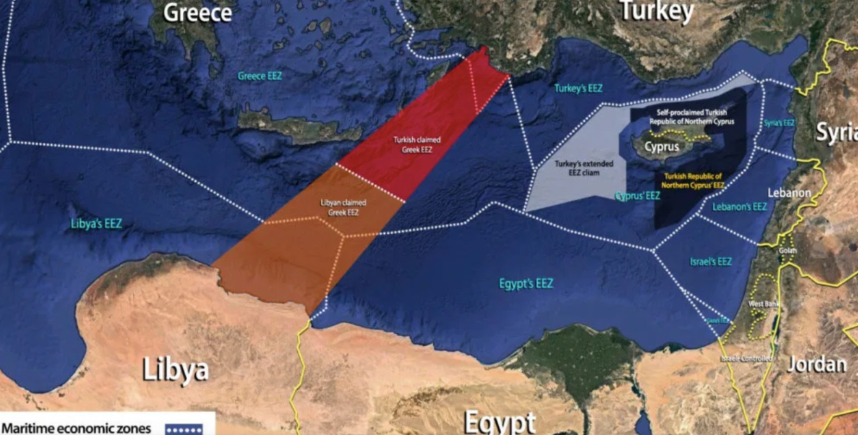Egypt has requested U.S. intervention to help prevent Libya’s eastern-based parliament from ratifying a controversial maritime agreement with Turkey, amid growing concerns that the move could escalate tensions in the Eastern Mediterranean.
According to regional officials familiar with the matter, Egyptian Foreign Minister Badr Abdelatty raised the issue in a recent phone call with Massad Boulos, the White House senior adviser for African affairs. The Egyptian side expressed concern that formal ratification of the 2019 maritime agreement—originally signed by Libya’s former internationally recognized government in Tripoli—could heighten regional disputes over energy rights and maritime boundaries. Boulos reportedly agreed to contact Khalifa Haftar, the military commander who holds de facto control over eastern Libya.
The agreement defines an Exclusive Economic Zone (EEZ) stretching between Turkey and western Libya, effectively extending Ankara’s maritime claims deep into the Eastern Mediterranean. It has drawn sharp objections from Greece, Egypt, and Cyprus, who argue that it disregards their maritime entitlements, particularly those of Greek islands. In response, Greece and Egypt signed their own EEZ agreement in 2020.
Libya’s eastern parliament, based in Tobruk and aligned with Haftar’s Libyan National Army (LNA), previously rejected the deal. However, recent reports suggest the body may be preparing to ratify it in the coming weeks. Greek Foreign Minister George Gerapetritis is expected to visit both Tripoli and Benghazi in the days ahead to address the maritime dispute with Libyan officials.
In addition to the diplomatic efforts, energy developments have further complicated the situation. In June, Libya’s National Oil Corporation, headquartered in Tripoli, signed a deal with Turkey’s state-owned energy company TPAO to conduct hydrocarbon exploration in four maritime blocks. Egyptian officials have expressed concern that some of the blocks may encroach on Egypt’s EEZ.
The apparent shift in Eastern Libya’s stance toward the Turkey-Libya maritime deal is seen as part of a broader regional realignment. Longstanding ideological divides that once defined post-Arab Spring alliances have been gradually replaced by pragmatic cooperation. Despite years of opposition, including armed conflict between Turkish-backed forces and the LNA, recent months have seen increased contact between Ankara and Haftar’s camp.
In May, Saddam Haftar—the youngest son of Khalifa Haftar—visited Ankara, following earlier trips to Qatar and Washington. In June, Turkey’s Ministry of Defense hosted three delegations from the LNA for discussions, signaling a growing willingness to engage. These developments have been closely watched in Cairo, where officials are wary of losing influence in eastern Libya.
There are also reports suggesting that Egypt views Saddam Haftar’s forces as possibly involved in cross-border activity into Sudan, and as having provided support to the Rapid Support Forces (RSF), which are currently engaged in conflict with the Sudanese military. Egypt and Turkey, despite their differing roles in Libya, have both publicly supported the Sudanese army in its confrontation with the RSF.
Earlier this week, Egyptian President Abdel Fattah el-Sisi hosted Khalifa and Saddam Haftar in El Alamein to discuss border security and regional coordination. Egypt shares a 1,115-kilometer border with Libya and considers the stability of its western neighbor a national security priority.
Although Libya remains politically divided between eastern and western authorities, major combat operations have subsided in recent years. Nevertheless, a formal ratification of the 2019 Turkey-Libya maritime deal could introduce new strains in regional diplomacy and affect energy cooperation in the Eastern Mediterranean.
The evolving situation highlights shifting regional alliances and underscores the growing complexity of maritime and geopolitical negotiations across the Mediterranean basin.







